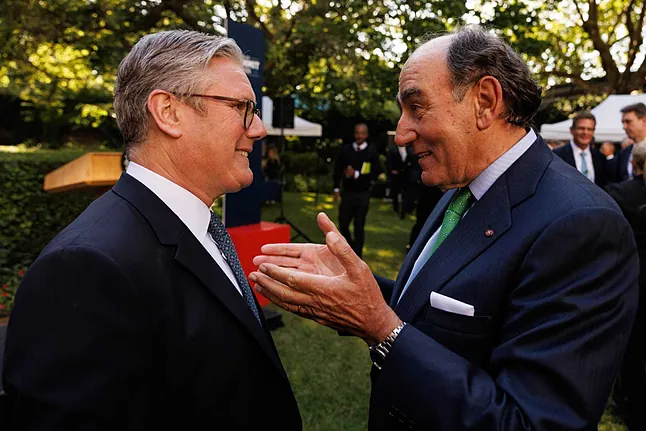United Kingdom and the European Union have started to backtrack on their energy divorce. The bilateral summit between London and Brussels held this week in the British capital, historic for being the first since Brexit, has opened pathways for a recovery of the electrical ties that once united both blocs. Hours of negotiations have resulted in an agreement that contemplates the reduction of taxes on energy and opens the door for the United Kingdom to participate again in the European Union's electricity market.
It was one of the major impacts of Brexit. The divorce cut off the flow of electricity to the United Kingdom through the internal market of the Twenty-Seven. In other words, the British territory lost preferential access to the interconnections that supplied energy to the country from France and Norway. It also stopped paying for that electricity at prices calculated by the algorithm of the community bloc. Regulated costs of energy bills for British companies and households increased, and the buying and selling of energy became more complicated, as London started negotiating individual contracts with each supplying country. Inefficiencies reached hundreds of millions of euros annually.
Therefore, this week's bilateral summit has captured the attention of European energy giants with interests in the British market. In the words of British Prime Minister Keir Starmer, it marks "a new chapter" in bilateral relations and "a new strategic alliance." European authorities have also welcomed the summit's outcome. European Commission President Ursula von der Leyen emphasized the importance of a strong union between the EU and the United Kingdom at a time of "global instability," when the continent "faces its greatest threat in generations."
Part of that uncertainty directly affects energy security, highlighting the importance of the recent agreement, which brings a renewed focus on energy integration and reducing trade barriers. In fact, both parties have identified other areas in which they will explore closer cooperation, including the possibility of the United Kingdom participating in the EU's internal electricity market.
Starmer himself invited Ignacio Galán, President of Iberdrola, Europe's largest electric utility by market capitalization, to a reception held at 10 Downing Street as part of the bilateral summit. Galán has celebrated the agreement and highlighted Iberdrola's role as one of the main investors in electric infrastructure in the United Kingdom, where the Spanish company is the second-largest network operator.
"With plans to invest 28 billion euros in the country by 2028, we support the British government's approach to boosting economic growth through closer cooperation in electrification and energy security," stated Iberdrola's CEO.
